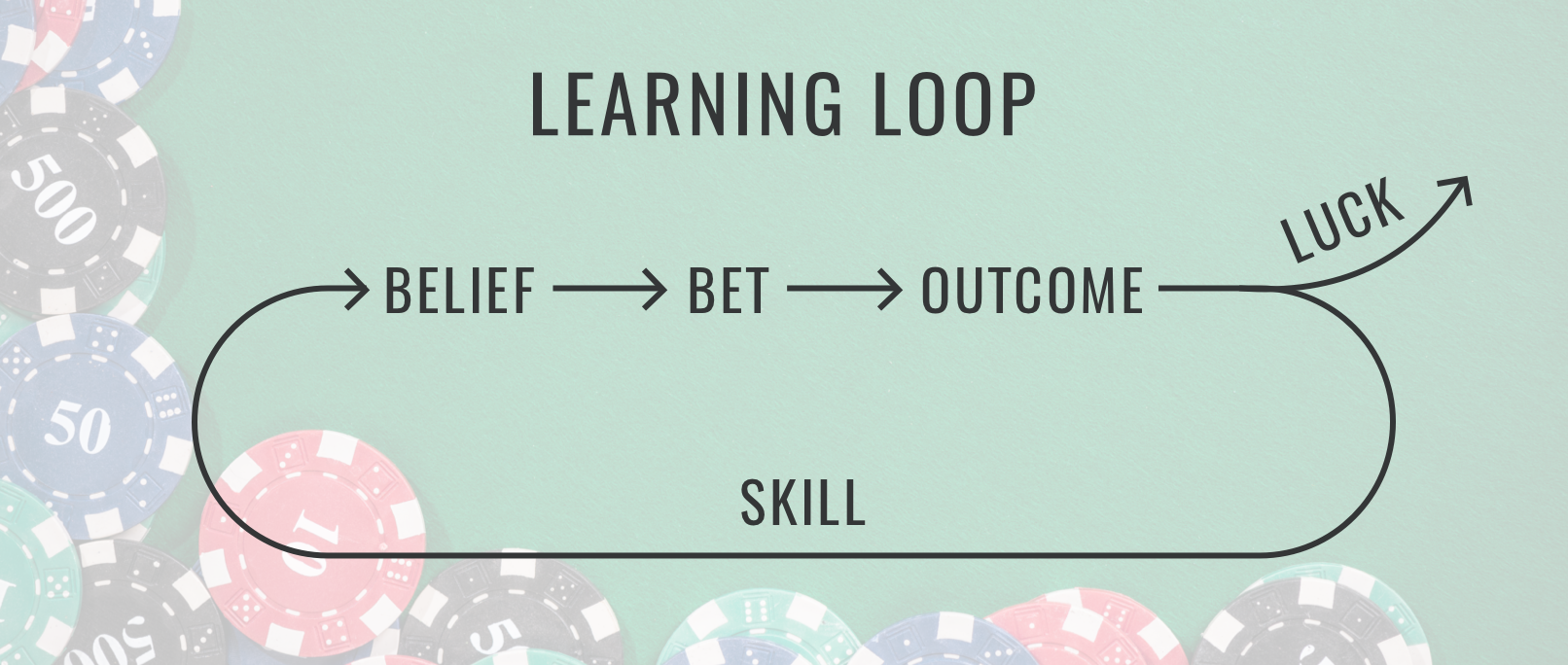A Product and Startup is a Series of Bets
Ryan Frederick | March 31st, 2020

I’ve been listening to Annie Duke’s book Thinking in Bets. I recommend it. It makes you realize how much of life is made up of bets. Some bets are small and inconsequential in the end, so we don’t acknowledge them as being bets. Then of course, there are the major life decisions where we really feel the risk of making a bet.
One of the things I’ve learned from Annie’s book so far is that bets are really a series of questions. Questions that help you determine whether something is a bet worth making and if so, how you think about and analyze your approach to the bet. Annie points out that betting is much more like poker than it is chess, which makes sense since she is a professional poker player. Her points are valid, irrespective of poker being her profession. Luck and unknowns are heavily involved when starting a company or building a product, much like poker. You don’t get to see everyone’s cards in poker, so you don’t have a complete set of information. And because new cards are being entered into the game periodically you can have a winning hand for the majority of the time and then with one card, maybe the last card, the whole game can flip. In Chess all of the pieces are visible by both players at all times. There are no surprises and there is no luck. Only skill and strategy. The better chess player wins most of the time because chess is almost entirely about the skill of dealing with the known. Being a Founder, building a product, and starting company is the commercial version of poker. There are so many unknowns and so much luck involved that it reduces the most skilled to looking like they are totally incompetent repeatedly.

As I’ve been listening to the book it struck me of how every aspect of being a Founder and a startup is a bet. I write about the irrationality of being a Founder and being part of a startup in my new book, The Founder’s Manual: A Guidebook for Becoming a Successful Entrepreneur, but thinking about it in terms of a series of bets is a new and different lens. Starting a company is an irrational act as most products and companies don’t work. Building a product and starting a company on top of the product is also a series of bets.
The reason I put product first and then reference building a company on top of the product is because the product must come first. And what comes before the product is even more important…the problem. The problem is where the first bet also comes into play for every product, Founder, and startup. Before you can determine whether a problem is worth the time, energy, and money to solve, you must assess and bet on the value and impact of the problem. Do customers/users care about the problem enough? And if solved, will they value it enough to pay for it at an acceptable level to make it commercially viable?
Once you’ve answered the questions associated to the problem bet, your confronted with another series of bets that include:
Timing bet — Is this the right time for this product and company? Can we capitalize on it within our available window of time? If you get this timing bet wrong, nothing else matters. Timing is critical.
Problem understanding bet — Can the team understand the problem at a deep enough level to create a product that solves the problem in a way customer will value and use? What will it take to get deep problem understanding if the team doesn’t have it?
Team capability bet — Is a team already formed, or can one be brought together, with the capability to create the product in a reasonable timeframe, while also grasping the complexity and severity of the problem? Solving complex problems with complex solutions doesn’t get anyone excited. Solving complex problems with simple solutions does.
Customer Product Fit bet — Can we get to Customer Product Fit? How quickly? What is it going to take? How do we create a product that is simple and elegant yet undeniably valuable?
Funding bet — Can we raise the funds to begin product development and found a new company? If not, how will we acquire funding? Is the product investable and how do we demonstrate that?
Sales and marketing bet — Can we find a way to acquire customers efficiently and cost-effectively enough to make the economics of the business work and to get to a point of being self-sustaining out of operations?
Team recruiting bet — Will be able to recruit the team necessary to pull this off and how do we go about it?

This list of bets just scratches the surface. There are macro bets like the ones listed above and then there are a myriad of micro bets. The bets are ongoing when creating a product and starting a company. Annie writes about the how the outcome of a bet doesn’t determine whether the bet was a good or bad. Most new products and startups have a short timeframe to get enough traction for a chance at long-term viability and sustainability. The environment for a new product and company is unforgiving. Only the best products and companies can survive. Making the right bets at the right time is what can determine its success.
The world of new products and companies is a high stakes game of poker. Here’s to making more winning bets than losing ones and having a bit of good luck along the way.
